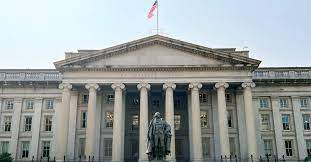
The Lazarus Group’s Modus Operandi
The Lazarus Group, believed to be operating under the auspices of the North Korean government, has gained notoriety for its sophisticated cyberattacks. Their primary objective is financial gain, and they have targeted banks, cryptocurrency exchanges, and other financial institutions worldwide. The group employs a range of tactics, including spear-phishing campaigns, malware deployment, and social engineering techniques to gain unauthorized access to systems.
In the case of the $600 million Korea-backed cyber heist, the Lazarus Group utilized a combination of spear-phishing emails and malware to infiltrate the targeted cryptocurrency exchange’s network. Once inside, they gained control over key systems and initiated a series of transactions that siphoned off millions of dollars’ worth of cryptocurrencies.
The US Treasury’s Investigation
Upon discovering the massive cyber heist, the affected cryptocurrency exchange promptly reported the incident to law enforcement agencies, including the US Treasury. Recognizing the severity of the attack and its potential implications for global financial stability, the US Treasury initiated a thorough investigation into the matter.
The investigation involved collaboration with international partners, including cybersecurity firms and intelligence agencies. The US Treasury’s Financial Crimes Enforcement Network (FinCEN) played a crucial role in tracking the flow of funds and identifying the individuals behind the attack. Through meticulous analysis of blockchain transactions and other digital footprints, they were able to trace a significant portion of the stolen funds to various cryptocurrency exchanges and wallets.
The Implications for North Korea
The revelation of North Korea’s involvement in this audacious cyber heist has serious implications for the country’s international standing. The US Treasury’s investigation not only exposed the Lazarus Group’s activities but also highlighted North Korea’s state-sponsored cyber warfare capabilities. This incident further reinforces the need for stronger international cooperation in combating cybercrime and holding nations accountable for their actions in cyberspace.
The US Treasury, in collaboration with its international partners, is now exploring various diplomatic and economic measures to address North Korea’s cyber aggression. These measures may include imposing sanctions on individuals and entities involved in cyberattacks, as well as increasing cybersecurity assistance to vulnerable nations.
Strengthening Cybersecurity Measures
The $600 million Korea-backed cyber heist serves as a wake-up call for financial institutions and governments worldwide to bolster their cybersecurity measures. The Lazarus Group’s attack exploited vulnerabilities in the targeted cryptocurrency exchange’s systems, highlighting the need for robust security protocols, employee training, and regular vulnerability assessments.
Financial institutions must invest in advanced threat detection and response systems to detect and mitigate cyber threats promptly. Collaboration between public and private sectors is also crucial in sharing threat intelligence and best practices to stay one step ahead of cybercriminals. Additionally, governments should prioritize cybersecurity education and legislation to ensure a safer digital environment for businesses and individuals alike.
Conclusion:
The US Treasury’s investigation into the $600 million Korea-backed cyber heist conducted by the Lazarus Group sheds light on the growing threat posed by state-sponsored cybercriminal organizations. This incident underscores the need for enhanced international cooperation, stronger cybersecurity measures, and accountability for nations involved in such attacks. As the world becomes increasingly interconnected, it is imperative that we remain vigilant and proactive in safeguarding our financial systems from cyber threats.





